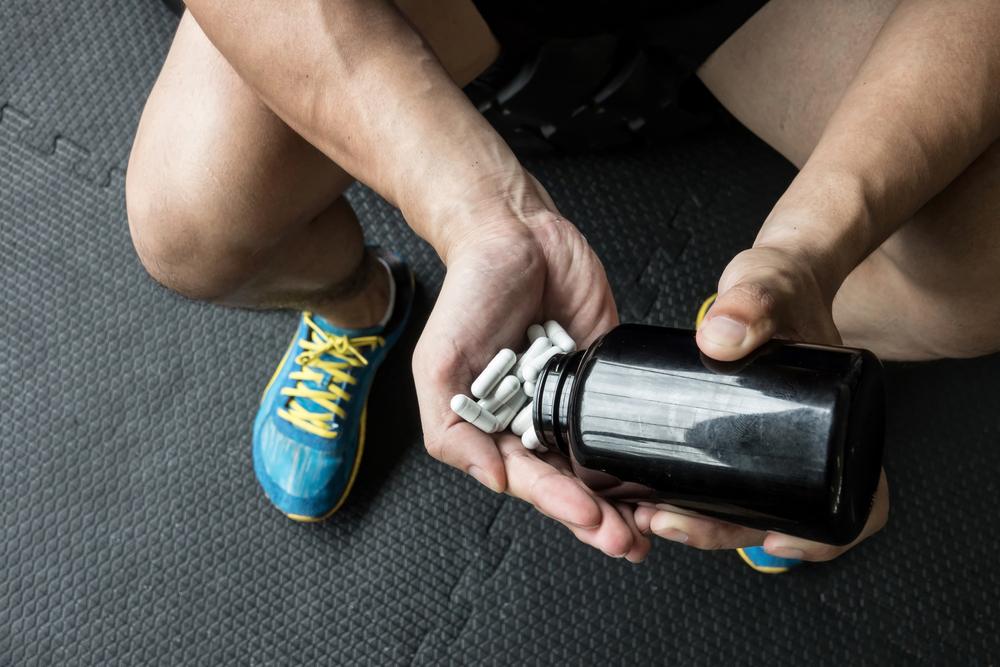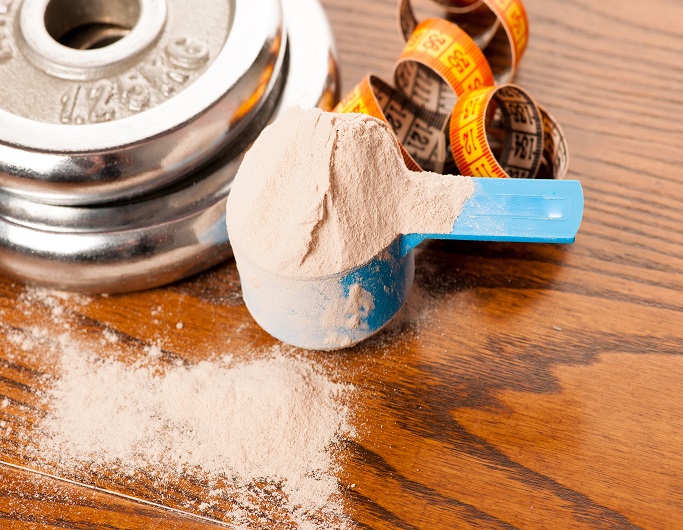
What Are BCAA’s?
BCAA’s are known as Branch Chain Amino Acids and are made up from the essential amino acids leucine, isoleucine, and valine. These 3 amino acids combined make up roughly 33% of our skeletal muscle and play a very important role in numerous biological processes within the body, perhaps most important for athletes is protein synthesis which is the production of proteins in cells from amino acids to build and increase muscle mass.
What Do BCAA‘s Do Pre-Workout?
BCAA’s have been shown to reduce muscle breakdown during intense training by creating a more anabolic environment within the working muscles, therefore a lot of athletes will take BCAA’s pre-workout to ensure their training becomes more anabolic and less catabolic, especially bodybuilders wanting to keep muscle mass. Furthermore it must be noted BCAA’s are actually metabolised in the muscles and not the stomach, which is one unique property that scientists believe is responsible for their anti-catabolic properties.
 What Do BCAA’s Do Post-Workout?
What Do BCAA’s Do Post-Workout?
Whilst BCAA’s have been shown to help athletes before training, it also seems they have benefits after training as well. Specifically this is related to the amino acid leucine and how it increases protein synthesis. As previously stated protein synthesis is a term used to describe the synthesis of new skeletal muscle proteins. When it happens on a larger scale it’s known as muscular hypertrophy and it’s basically the process that athletes want when they are looking to increase the size of their muscles.
Now resistance training provides the necessary stimulus to your muscles for them to repair and regrow bigger, however the initial bout exercise actually results in a negative net protein balance i.e. overall muscle breakdown (S.M Phillips, 1997). This negative net protein balance must be counteracted as soon as possible straight after your workout if you want to start building muscle and scientists are in agreement that the best way to do this is to ingest a quick releasing protein such as whey concentrate with the amino acid leucine. Until this is consumed it’s believed the protein balance will remain negative and the ‘stimulus’ of weight training will be ineffective (T.A. Gautsch, 1998).
BCAA’s For Recovery
As well as helping to preserve muscle mass and also increase protein synthesis post workout, studies have also shown BCAA’s can help maintain a healthy immune system during periods of intense training when it could become compromised. According to researchers at the Department of Physiology and Biophysics at the Institute of Biomedical Sciences in Brazil, it does this by favourably interfering with the body’s lymphocytes. These are a type of cell within the body that help to fight viruses and infection.
References:
- Bennet WM, Connacher AA, Scrimgeour CM, Smith K and Rennie MJ (1989) ‘Increase in anterior tibialis muscle protein synthesis in healthy man during mixed amino acid infusion: studies of incorporation of leucine.’ Clinical Science, 1989 April;76 (4):447-54
- Reinaldo A Bassit, Leticia A Sawada, Reury F.P Bacurau, Franciso Navarro, Eivor Martins Jr, Ronaldo V.T Santos, Erico C Caperuto, Patricia Rogeri nad Luis F.B.P Costa Rosa (2002) ‘Branched-chain amino acid supplementation and the immune response of long-distance athletes’ Nutrition, Volume 18, Issue 5, May 2002, Pages 376–379
- Yoshiharu Shimomura, Taro Murakami, Naoya Nakai, Masaru Nagasaki, and Robert A. Harris (2004) ‘Exercise Promotes BCAA Catabolism: Effects of BCAA Supplementation on Skeletal Muscle during Exercise’ The Journal Of Nutrition, June 1, 2004 vol. 134 no. 6 1583S-1587
- Eva Blomstrand and Bengt Saltin (2001) ‘BCAA intake affects protein metabolism in muscle after but not during exercise in humans’ American Journal Of Physiology, Endocrinology and Metabolism, August 1, 2001 vol. 281 no. 2 E365-E374
- Negro M, Giardina S, Marzani B and Marzatico F (2008) ‘Branched-chain amino acid supplementation does not enhance athletic performance but affects muscle recovery and the immune system.’ Journal Of Sports Medicine and Physical Fitness , 2008 Sep;48(3):347-51.
- Bassit RA, Sawada LA, Bacurau RF, Navarro F and Costa Rosa LF (2000) ‘The effect of BCAA supplementation upon the immune response of triathletes.’ Medicine and Science Sports and Exercise. 2000 Jul; 32(7):1214-9.






No Comments yet!